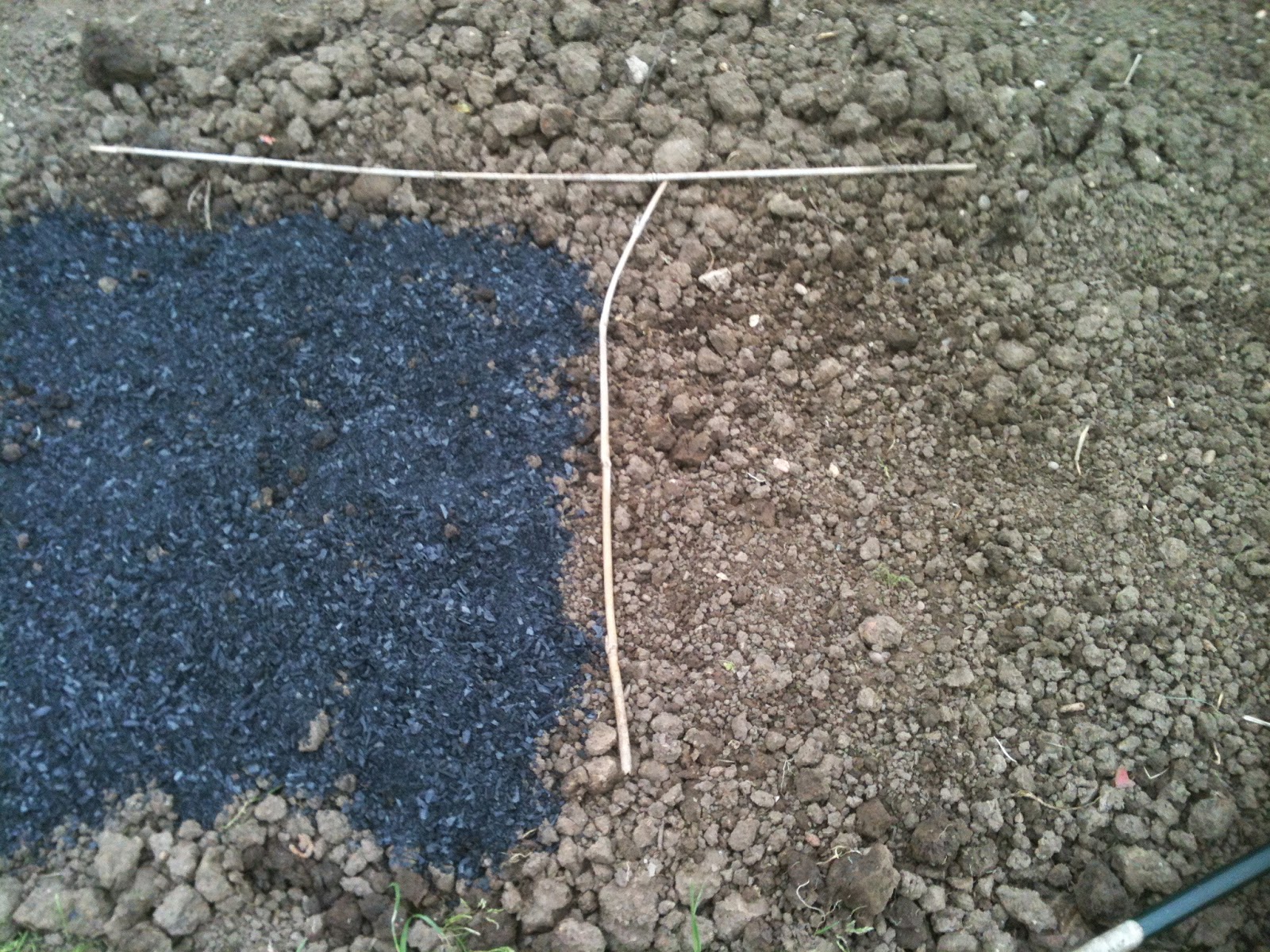This year, I thought I would have more time as I am not employed full time, but only now teach 2 1/2 days a week; but it seems I am busier than ever as running a business, getting new funding and designing and delivering new courses is a very time consuming job!
I had signed up to do the members experiments and wanted to document them on here to remind myself to make the necessary records as much as anything.
Firstly; the Biochar experiment.
We received a bag of biochar - enough to cover one square meter of soil.
I duly measured and marked out the area and spread the biochar over one half of the two square meter trial area.
I then dug the bio char in and marked out the rows, and sowed the seeds. I didn't have time to sow the cabbages and replant so I had to sow those half in each side, just like the carrots and beetroot that were also provided. The sowing date was 5 May 2014.
I will update herewith photos as the trial progresses - with the biochar side always on the left.
Update:
20 June 2014...I have counted 15 beetroot on the non-biochar side and 9 on the biochar side. I have harvested 2 of the non bio chat beets as they are at eating size.
27 June - harvested one carrot from biochar side. Notable comment - loads of weeds on the non biochar side but very few on the biochar side.
Harvests to date:
Biochar
2 Carrot 124 g
1 beetroot - 339g
1 beetroot - 180 g
Non Biochar
3 beetroot, 220, 200, 251g
2 beetroot total 194 g
Secondly - Oca. I have grown Oca several times and already have tubers but I'll follow this through properly this time. Again, sown on the 5th May 2014.
Thirdly - I have Bronze Arrow lettuce that I will be sowing but I'm not going to sow until after 22nd June as I have so much lettuce already and I want to see if the trial also works on lettuce not bolting if sown after mid summer's day and it grows quickly enough to get a crop in before the autumn so it's win-win.







